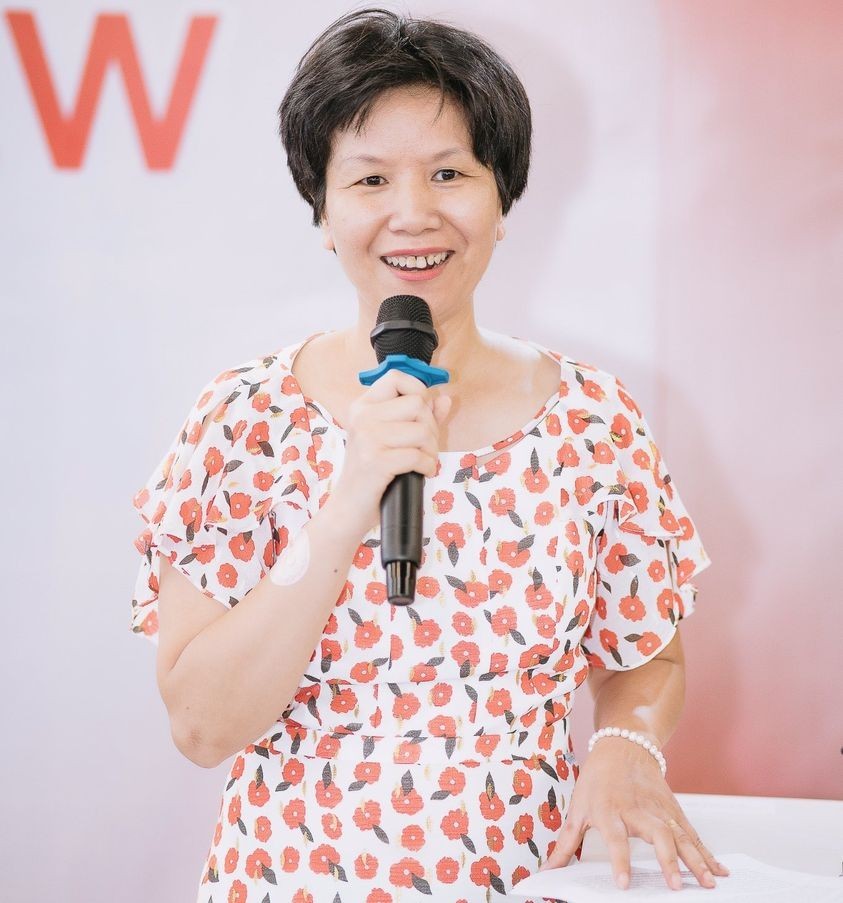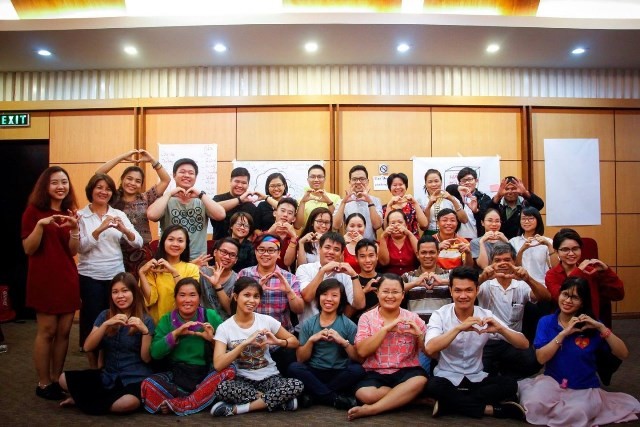
Changes needed from awareness to action on gender equality: Expert
Latest
 |
| Changes needed from awareness to action on gender equality: Ngo Thi Thu Ha, Director of the Center for Promoting Women's education and capacity building, speaks at the discussion. (Photo: Courtesy) |
Vietnam is one of the first countries to join the Convention on the Elimination of All Forms of Discrimination against Women (CEDAW). Vietnam is also considered one of the countries which have eliminated the gender gap in the fastest pace in the past 20 years, especially in the fields of politics, labour and health care.
However, gender bias and gender-based violence still exist, especially in the context of digital technology development.
Gender stereotypes still exist
Since the 1980s, Vietnam's participation in the CEDAW Convention has contributed to certain achievements in promoting gender equality and protecting the rights of women and girls in recent years and should be promoted in the future.
Women are always considered by the State and society as an important force contributing to the construction, protection and development of the country. According to the 2020 labour and employment survey report of the General Statistics Office, in the economic field, women participate in the labour force at a high rate, accounting for 47.7% of the urban labour force and 47.2% of the rural labour force.
The Ministry of Health's issuance of a document affirming that homosexuality is not a disease and requiring no stigma or discrimination in health services for gay, bisexual and transgender people is also an important remarkable achievement. These achievements lead to progressive regulations on transgender rights and equal marriage in the future.
Vietnam has made certain progress in gender equality in leadership at all levels, such as the rate of girls attending school is higher than before, the rate of women participating in the labour market and owning businesses has also increased.
However, gender stereotypes still exist. Gender-based violence still occurs at home, on public transport and other shared spaces. Meanwhile, the punishment measures are not commensurate with the seriousness of the problem.
In fact, gender stereotypes still exist, leading to the work of planning, appointing and introducing female officials in some departments and at some times not meeting the requirements set out in the Party's directives and resolutions. or in National Strategies on Gender Equality. Prejudice and gender stereotypes also become a burden for women when they have to make efforts to fulfill their roles as wives and mothers in the family and also fulfill their roles as workers and leaders in the workplace, agencies, organizations and communities.
Gender stereotypes and the power asymmetry of each gender in the family and society are also causes of gender-based violence. Punishment measures for acts of gender-based violence are still considered light and do not act as a deterrent. Gender stereotypes and social prejudices about the roles of each gender also make it difficult for men. Men have to brace themselves because of their role as the family's economic breadwinners and suppress their emotions when encountering some incidents in life and work.
In the political field, although the proportion of women participating in party committees, elected bodies and administrative apparatus at all levels has increased in recent terms, the increase is slow and unstable. Women often hold deputy positions in agencies instead of holding the head positions.
Understanding and proper skills in gender mainstreaming
To ensure gender-responsive social security policies, it is necessary to have reliable and timely gender-disaggregated statistical data so that those who advise, evaluate and approve these policies have a basis for making responsible decisions about gender.
 |
| Changes needed from awareness to action on gender equality: people participating in the budget process also need to have a correct understanding of gender equality and gender mainstreaming skills. (Photo: Courtesy) |
To integrate gender well into social security policies, people participating in the budget process also need to have a correct understanding of gender equality and gender mainstreaming skills.
However, a gender-responsive social security policy is not meant to be exclusive to women, but should also consider the vulnerabilities of any gender. In my opinion, special attention needs to be paid to inter-layeredness in policies, that is, it must include people with disabilities, ethnic minorities, migrants, children, single people raising children and some other people from marginalized groups
The issue of women and children is of concern at the national and regional levels in Southeast Asia, demonstrated through the formation and maintenance of the activities of the ASEAN Commission on the Promotion and Protection of the Rights of Women and Children (ACWC), which is a part of the ASEAN Inter-Governmental Committee on Human Rights (AICHR).
The opportunity to work with experts and organizations in the region shows that representatives of some countries in ACWC and AICHR are very actively proposing initiatives on women and children's rights. They are open to dialogue and listen to the opinions of experts and non-governmental organizations working on gender equality from ASEAN member countries.
A number of joint initiatives on preventing human trafficking, protecting migrant workers, enhancing women's economic capacity, and sharing experiences in implementing the CEDAW Convention are also implemented by non-governmental organizations. Ensuring a mechanism for non-governmental organizations to implement initiatives to promote gender equality and women's rights also contributes to eliminating gender inequality.
I hope that Vietnam's representatives at AICHR and ACWC will be more proactive in organizing activities to update information for the community and non-governmental organizations on initiatives to protect women's and children's rights which are proposed and implemented by Vietnam as an ASEAN member. Thereby, Vietnam could coordinate with non-governmental organizations to implement these initiatives at national as well as regional level.
Need to change from awareness to action
In order to have changes, in my opinion, it is necessary to train a generation of leaders who are sensitive to social issues such as prejudice, stereotypes, stigma and discrimination so that these issues need to be consistent in the legal and policy systems, as well as in the implementation process of leadership, civil servants and public employees. In particular, it is necessary to recognize both direct and indirect multi-layered discrimination in laws, policies and enforcement processes for inclusive solutions.
In addition, it is necessary to change the way of teaching in schools to ensure that teachers are not the ones conveying prejudiced or gender-discriminatory messages.
In addition, if you want to eliminate gender stereotypes, you have to make changes in your family, do not create more generations with gender stereotypes. Family members who do not carry gender stereotypes will contribute to eliminating gender stereotypes in society from the policy level to practical actions, from the organizational and agency levels to the individual level.
* Ngo Thi Thu Ha is Director of the Center for Promoting Women's education and capacity building

















